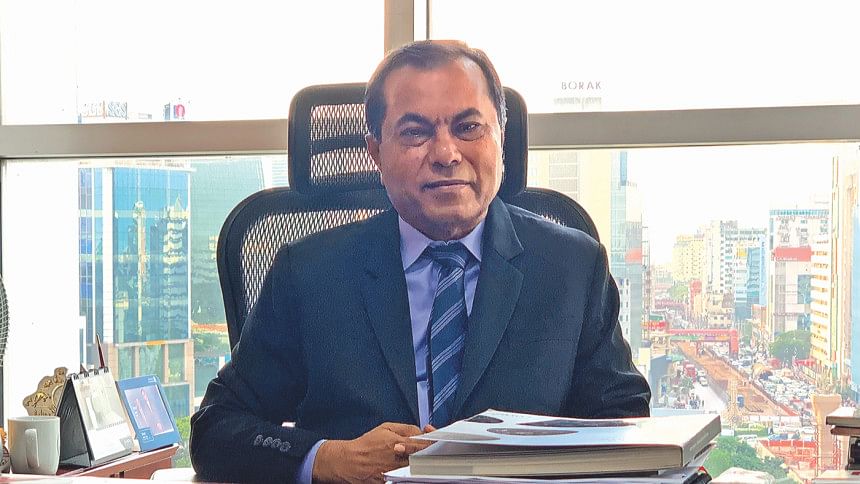“The reduction of production cost will increase the prospects for export”

What are the unique aspects of your company?
We claim ourselves to be the experts of the tiles industry as our company has been dealing with this business for 33 years. Though our tiles manufacturing project has been operational for 13 years, we have been importing raw materials for tiles since 1981. We started at this rudimentary stage and intervened in the market later. So, our long-term expertise helps us excel in the market.
We have our retail chain store, from where we sell almost 40 percent of our manufactured products. The benefit is that we manufacture the goods on our own and market the products through our own stores, which helps us lead the market and keeps us ahead of the other players.
The unique aspect of our company is the lucrative design of our products. Our designs are so exquisite that when we launch a new design in the market, other companies imitate our design and bring in duplicate products.
We transformed the designs of our products with the use of the digital inkjet machine. Initially, we used printing to design the tiles, but we have upgraded the design with the application of technology in the last four years.
What are the challenges and how do you overcome them?
At present, our reliance on the supply of raw materials from Thailand and Malaysia means there are some complications. The raw materials contain moisture of around 35 to 40 percent. However, the import duty on these moisturised products affects our production cost. Since we do not get any benefit from the moisture, we are trying to convince the government to rethink the tax imposed on moisturised materials.
Currently, we are encountering a problem with skilled human resources since this industry is comparatively new.
What innovations are you focusing on? What is the scope for further growth and improvement?
We started producing sanitaryware after tiles. We used to import the sanitaryware before from Koto Brand in Thailand. We now have started producing this brand. The good news is, this brand is now being widely used in various projects, which was not possible before because of the high price. We now have this factory in Habiganj, Madhabpur and our products have already been enlisted for usage by many government organisations. I believe this is a very popular product here and will successfully satisfy the demands of the customers.
We are currently developing a new product. The government wants an alternative to the brick kiln industry, which is why we are thinking of developing an automatic plan and board factory. We already have an office where we are planning this out by importing the necessary materials from Thailand. In future, we have the vision to create a substitute to brick kilns so that we won’t have to burn our soil and woods. We still don’t have cement board in our country, which we hope to produce and introduce in the market in the future.
What improvements are needed in the ceramics industry? What kind of support should the government provide to the industry?
For now, our primary goal should be exporting the manufactured product to the competitive international market by using imported raw materials. Among all the categories, only tableware ceramics are being exported to other countries from Bangladesh. At present, we are trying to export sanitaryware. While we are attempting to boost our exports, we still have some complications since we import all the necessary raw materials. If the government provides us some facilities and support on the import of raw materials, thus reducing the cost of raw materials, our exports will be boosted at an unprecedented rate.

 For all latest news, follow The Daily Star's Google News channel.
For all latest news, follow The Daily Star's Google News channel. 



Comments